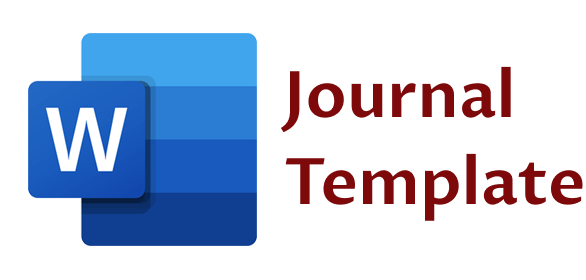PERSPEKTIF AL-QUR’AN TENTANG PEMBERDAYAAN EKONOMI UMAT MELALUI PENINGKATAN KOMPETENSI PERANGKAT GAMPOENG
Keywords:
Empowerment;, People's Economy;, Village Fund;, Qur'anAbstract
The Village Fund (VF) is an important program of the government of Indonesia that improves the welfare of rural communities. The allocation of funds for Aceh is a relatively large amount, reaching IDR 4.79 trillion in 2024. The VF is expected to encourage infrastructure development and people's economic empowerment to minimize poverty. However, the VF in Aceh is still not optimally managed by village officials so it does not reduce the poverty rate. The Central Bureau of Statistics (BPS) noted that Aceh is the poorest province in Sumatra and the sixth in Indonesia. This research investigated leadership competence according to the Qur'an, transparency and anti-corruption commitment in the management of public funds. This is a library research, in which the data obtained from from reading materials consisting of verses of the Qur'an, traditions of the Prophet Muhammad, interpretations of scholars, and other written documents for further analysis. This study found that the Qur'an talks about the capacity of leaders. Among them is found in Surah An-Nisaa verse 58 which talks about the capacity of leaders. There are two lessons that Allah commands in this verse, namely to deliver the mandate to those entitled to receive it and to be fair to fellow human beings. The discussion of corruptive actions can be seen in several verses in the Qur'an such as the verse that prohibits eating other people's wealth by false means, the verse prohibiting bribing.
References
Ani Nursalikah, Tafsir Surat An-Nisa ayat 58: Perintah Memberi Amanah kepada Orang yang Tepat.
Agus Miswanto, Ushul Fiqh, Metode Hukum Islam, jilid 2.
Badan Pusat Statistik (BPS), 2023, diakses dari www.bps.go.id.
Badan Pusat Statistik (BPS), Indikator Kesejateraan Rakyat 2022, www.bps.go.id.
Badan Pusat Statistik (BPS), Persentase Penduduk Miskin (PO) Menurut Daerah 2021-2022, www.bps.go.id.
Badan Pusat Statistik (BPS), Indeks Pembangunan Manusia (IPM) Indonesia tahun 2022, www.bps.go.id.
Badan Pusat Statistik Provinsi Aceh, Persentase Penduduk Miskin 2020-2022, aceh.bps.go.id.
Badan Pusat Statistik (BPS), Persentase Penduduk Miskin September 2022, www.bps.go.id.
Bayu Anggoro, Perangkat Desa Membutuhkan Kejelasan Status dan Kompetensi, Media Indonesia, edisi 8 Desember 2022.
Dinas Pemberdayaan Masyarakat Gampong Aceh, Alokasi Dana Desa Tahun 2023, www.dpmg.acehprov.go.id.
Dinas Pemberdayaan Masyarakat Gampong Aceh, Alokasi Dana Desa Tahun 2023, www.dpmg.acehprov.go.id.
Devy Setya, Detik Hikmah, Korupsi dalam Pandangan Islam, Perbuatan Buruk yang merugikan Orang Lain.
Indra Wijaya, Serambi News, Korupsi Dana Desa Rp 423 Juta, Mantan Keuchik Gampong Piyeung, Montasik Ditahan, diterbitkan pada 19 Oktober 2022.
JDIH BPK RI, Database Peraturan, peraturan.bpk.go.id.
Mudjia Rahardjo, Mengukur Kualitas Penelitian Kualitatif, Gema: Media Informasi dan Kebijakan Kampus, https://uin-malang.ac.id
Mestika Zed, Metode Penelitian Kepustakaan, Yayasan Pustaka Obor Indonesia, Cetakan Ketiga, 2014.
Tafsir Al-Muyassar, Kementerian Saudi Arabia.
Tafsir Al-Qur’an al-Azhim, jilid 5.
Tayangan youtube https://m.youtube.com, Tafsir Al-Misbah Metro TV.
Kementrian Keuangan Republik Indonesia, Artikel DJKN, Mengenal Kepemimpinan dan Model Kepemimpinan, djkn.kemenkeu.go.id.
Nashih Nasrullah, Replubika, Kata Batil dalam Al-Qur’an dan Penggunaannya dalam Syariat.
Sarnita Sadya, ICW: Korupsi Paling Banyak Terjadi di Desa pada 2022, dataindonesia.id, diterbitkan pada 20 Maret 2023.
Rina Anggraeni, Separuh Penduduk Indonesia Tinggal di Pedesaan, economy.okezone.com.
Downloads
Published
Issue
Section
License
Copyright (c) 2024 Sarah Syakirah, Hasan Basri M. Nur

This work is licensed under a Creative Commons Attribution-NonCommercial 4.0 International License.










